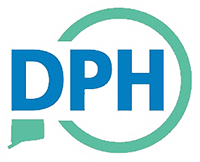FOR IMMEDIATE RELEASE: June 17, 2024
CONTACT: Chris Boyle, Director of Communications
(860) 706-9654 – christopher.boyle@ct.gov
Commissioner Juthani encourages residents to utilize the new CDC HeatRisk Tool which is located on the DPH website
HARTFORD, Conn. – With the first heat wave of the year expected this week, Connecticut Department of Public Health Commissioner Manisha Juthani, MD, is reminding individuals who will be spending time outside or in non-air-conditioned spaces to be cautious during periods of intense heat during the day.
“During this current heat wave, residents should stay hydrated, take frequent breaks in cooler air-conditioned/shaded areas, and limit the time spent in direct sun,” Commissioner Juthani said. “Additionally, more physical tasks should take place in the morning or evening, when the sun is less intense, and temperatures are cooler. Residents also should stay informed with town alerts and updates from their local health departments.”
Commissioner Juthani encourages residents to utilize a new tool developed by the Centers for Disease Control and Prevention where residents can easily input their zip code to view the real-time heat risk in their respective counties. Please visit the DPH website—ct.gov/dph —to access the CDC HeatRisk Tool.
HeatRisk and the Air Quality Index provide information that can help residents take actions to stay safe on hot days or days with poor air quality. These tools can provide information to know when hot outdoor temperatures (HeatRisk) or poor air quality (Air Quality Index) may pose a risk to their health. Educating patients and caregivers about these tools can help ensure they can effectively use the information provided.
For those experiencing heat stress, call for medical assistance immediately!
Although anyone can be affected by heat-stress, those working outside are at a particularly high risk including:
- Older individuals (over 65 years of age) who may not compensate for heat stress efficiently and are less likely to sense and respond to changes in temperature
- Those performing frequent high-exertion tasks (lifting, digging, walking) who may become dehydrated quickly and experience more intense heat stress
- Those who have underlying health conditions, especially heart disease, obesity, high blood pressure, diabetes, or who take certain medications that put them at risk
Follow the steps below to stay cool and hydrated while working in the heat:
Stay Cool
Keep your body temperature cool to avoid heat-related illness.
- Stay in air-conditioned buildings as much as possible. If you must work outdoors, try to limit your outdoor activity to the mornings and evenings.
- Avoid working in direct sunlight and wear lightweight, light-colored, and moisture-wicking clothing
- Check on family members, especially those most at risk often
- If you feel ill working in the heat notify a family member and stop working
Stay Hydrated
Because your body loses fluids through sweat, you can become dehydrated during times of extreme heat.
- Drink more water than usual; do not wait until you are thirsty to drink more liquids.
- Avoid drinking alcoholic beverages
- Drink about four cups of water every hour while working outside
- Remind others to drink enough water
For more information about steps that employers and workers can take to reduce the risk of heat-related illness, contact the Connecticut Department of Public Health’s Occupational Health Program at (860) 509-7740 or email dph.occhealth@ct.gov.
-30-


